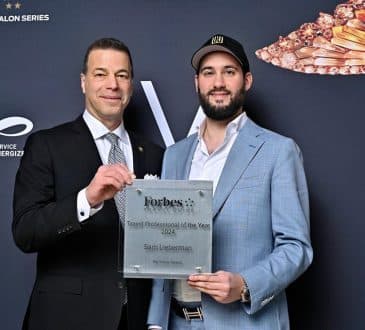The Great Resignation- Could Gratitude in the workplace hold the key?

It’s being called by many names, but the Great Resignation is sparking a very different response depending on how you look at it.
The actual term comes from the World Economic Forum who are saying that 41% of employees plan to leave their job this year. In the US and Europe, this is already in play. Innovation expert at Gartner, Aaron McEwan suggests that we have about six months to prepare for the mass movement with many saying Australia is having a delayed response, expected to impact March 2022.
In October this year data from LinkedIn has shown a 26% jump in workers changing employers in comparison to the same time last year.
There are many factors contributing the great resignation including:
- No pay rises
- Lack of career opportunities
- Lack of appreciation and recognition
- Post pandemic values misalignment
- Poor company culture
- Lack of work life balance
- Overseas work opportunities (Employment Hero research says 2 in 5 people would consider taking a job overseas)
The Great Rejuvenation?
I believe the great resignation is actually a gift, as challenging and hard as it is going to be in organisations and on industries, I think it should be called the great rejuvenation. I believe a lot of the contributing factors have been underlying and many people have experienced some sort of awakening during and post pandemic.
When we are challenged and let’s face it, the pandemic has been the war of our lifetime, it’s natural and healthy to question things such as your purpose, values, career path, priorities, life balance and ultimately your life. I believe a lot of people have “hung in there” during the lockdowns and are now emerging with a stronger conviction of what they really want.
It was only last week I had a senior sales manager say to me that he now wants to work in a company that has a bigger purpose then just profit. Another client said she doesn’t feel aligned anymore with the values of a company she has worked for over 13 years.
None of this is new, things are just rising to the surface, and I believe we all need to look at and address the factors that we can control, as leaders, organisations, or business owners.
One of these factors is Creating a workplace culture of gratitude
Recognition, praise, gratitude, whatever you want to call it, is free and so underestimated.
Lack of appreciation & recognition is common, many organisations are performance based and may look at gratitude and self-reflective time as indulgent or they may practice what we call “grey gratitude” where there is recognition, but it is not regular, intentional, or specific.
The practice of gratitude is vital in all areas of life. It can take place as a feeling, a mindset, or an action.
Cultural norms
The collective workplace culture can really drive whether the organisation is one that shares and shows gratitude. Not all companies embrace gratitude, and many are transaction and performance focused. Many people feel awkward showing gratitude and see it as a sign of weakness. Others believe that it is time-consuming or fear they might not receive gratitude in return.
In our home lives, different backgrounds, experiences, and ethnicity can play a huge role as far as the level of priority that gratitude is given. The good news is you have the choice in and out of work to make gratitude part of your life in a way that works for you.
Benefits of gratitude
There are many benefits of gratitude. Robert Emmons, the world’s leading scientific expert on gratitude, studied more than 1000 people from ages eight to 80, and found that people who practise gratitude consistently report a host of benefits:
Physical:
- – Stronger immune systems
- – Less bothered by aches and pains
- – Lower blood pressure
- – Exercise more and take better care of their health
- – Sleep longer and feel more refreshed upon waking
Psychological:
- – Higher levels of positive emotions
- – More alert, alive and awake
- – More joy and pleasure
- – More optimism and happiness
Social:
- – More helpful, generous and compassionate
- – More forgiving
- – More outgoing
- – Feel less lonely and isolated
The social benefits are especially significant here because, after all, gratitude is a social emotion. I see it as a relationship-strengthening emotion because it requires us to see how we’ve been supported and affirmed by other people, pivotal in the workplace.
Some researchers also refer to an additional benefit of gratitude, known as the ‘find-remind-bind’ function. By attuning people to the thoughtfulness of others, gratitude helps them ‘find’ people who are good candidates for quality future relationships. It also helps ‘remind’ people of the goodness of their existing relationships.
Lastly, it ‘binds’ them to their partners and work colleagues by making them feel appreciated, and encouraging them to engage in behaviour that will help prolong their relationships.
Gratitude at work
If you are a leader who wants to encourage your employees to go beyond the contractual obligation of their roles, expressing gratitude should be part of your leadership. Gratefully acknowledging the thoughts and efforts of your people shows them that they matter, and this can also build a vital culture around gratitude.
In any role at work, we should practise gratitude – this is the best way to ingrain it in your organisational culture. Research led by Lea Waters at the University of Melbourne found a positive relationship between expressing gratitude and increased productivity and job satisfaction. Gratitude can lower stress and reduce absenteeism.
Finding out how your people like to express and receive gratitude works best.
Expressing gratitude to others could be in the form of a thankyou note, a phone call, an email, a passing comment, deeply listening to someone or even taking someone out for a coffee or lunch. In a study, the Happiness Project found that when thankyou letters were sent in the post the ‘happiness level’ went from 2% to 4%. When people were phoned directly, this increased by 4% to 19%.
A few ideas for expressing gratitude in the workplace:
- During team meetings, share what each of you has learnt and enjoyed from working with each other
- Who and what are you grateful for?
- Send surprise emails to others expressing appreciation
- Adopt the 3:1 ratio- for every negative share 3 positives
- Create a forum to share internal updates and encourage people to share.
Finding out how your people like to express and receive gratitude works best.
It is important to think of subtle ways of sharing gratitude every day within the workplace. Ideally, there will be structured forums to share as well as spontaneous recognition and ways to show appreciation. Be mindful not to do ‘gratitude’ in overdrive – this can seem false and dilute the effects of authentically being grateful.
Lack of recognition is only one of the key factors contributing to this “next normal”, but it is one I know we can address and encourage as part of a connected and collaborative workplace culture.
What can you do to foster a workplace of gratitude and make people feel truly appreciated?
Written by Renée Giarrusso.
Add CEOWORLD magazine to your Google News feed.
Follow CEOWORLD magazine headlines on: Google News, LinkedIn, Twitter, and Facebook.
This report/news/ranking/statistics has been prepared only for general guidance on matters of interest and does not constitute professional advice. You should not act upon the information contained in this publication without obtaining specific professional advice. No representation or warranty (express or implied) is given as to the accuracy or completeness of the information contained in this publication, and, to the extent permitted by law, CEOWORLD magazine does not accept or assume any liability, responsibility or duty of care for any consequences of you or anyone else acting, or refraining to act, in reliance on the information contained in this publication or for any decision based on it.
Copyright 2024 The CEOWORLD magazine. All rights reserved. This material (and any extract from it) must not be copied, redistributed or placed on any website, without CEOWORLD magazine' prior written consent. For media queries, please contact: info@ceoworld.biz
SUBSCRIBE NEWSLETTER








